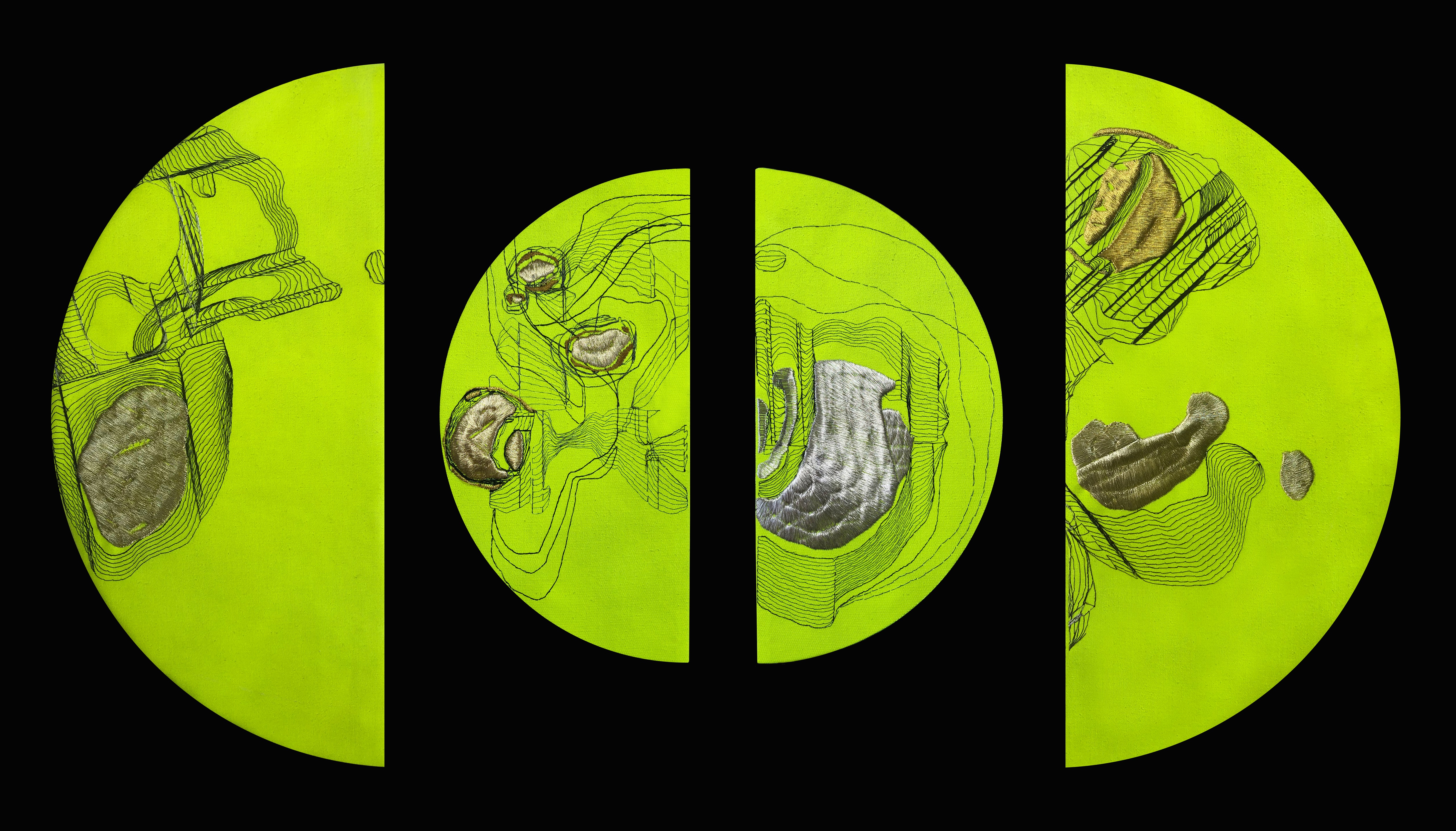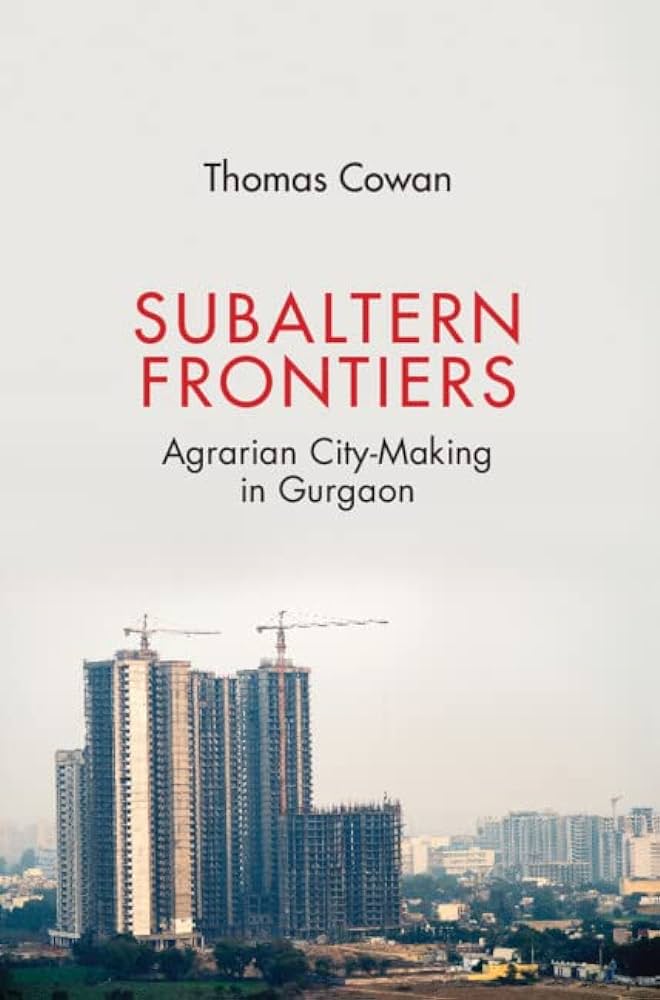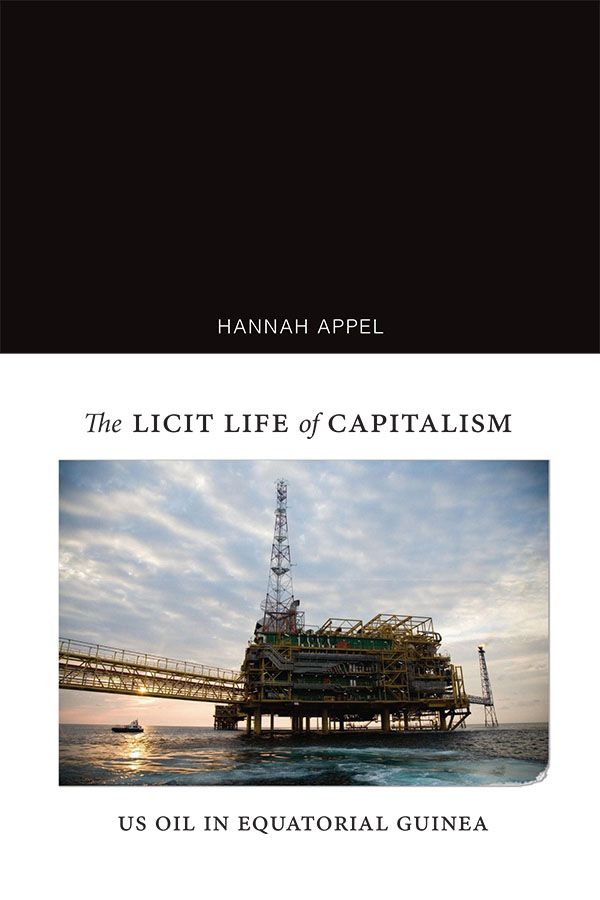
Melinda Cooper is an associate professor in the School of Social and Political Science at the University of Sydney, Australia. Her research focuses on social studies of finance, neoliberalism, and the new social conservativisms. Her recent book, Family Values: Between Neoliberalism and the New Social Conservativism (MIT Press 2017), revisits the exigencies of the neoliberal counterrevolution in the 1970s to demonstrate how the figure of the ‘family’ has been used to shore up conservative policies on both the left and the right. The family, she argues, is not external to neoliberalism, but at the center of it. She is also the author of Life as Surplus: Biotechnology and Capitalism in the Neoliberal Era.
Kelsey Johnson: In some ways, Family Values is an empirical departure from your earlier work on the promissory economies of biotechnology in Life as Surplus and on embodied and biological labor in Clinical Labor (with Catherine Waldby). I’m wondering if you can contextualize these shifts in your work. In particular, what sparked your interest in theorizing neoliberalism/social conservatism and the family in the first place?
Melinda Cooper: It might look like an empirical shift but this book was simmering away for a very long time. I am very undisciplined and eclectic in terms of thematic concerns but (I like to think anyhow) more contained in terms of ongoing theoretical and political interests. I have always been interested in the dynamics of capitalism and always interested in the relationship between capitalism and “reproduction” — a loaded and often undertheorized term, but one that I think captures the intersection of sex/gender and race or its cognates (family, ethnicity, peoplehood).
My doctoral thesis was focused on the political work of Deleuze and Guattari, in particular their reading of Marx’s Grundrisse and its reflection on the double movement of capital, which they characterize as “deterritorialization/reterritorialization.” I have always found this the most enigmatic and enabling of Marx’s insights but I felt also that what Deleuze and Guattari were doing in terms of sex/gender was pretty regressive. They were translating a shift in the organization of sex/gender that had everything to do with the end of Fordism but also ontologizing a new status quo. So I was interested in developing a critique of a political philosophy that was already a critique of “reproduction” and its organization of sex/gender. I feel that I failed. I lost faith in the idea that you can develop a critique of political philosophy from within the terms of political philosophy. It’s hard to articulate exactly what’s wrong when you are swimming in the same language.
So I guess I started looking outside of the textual world of political philosophy and thought I could pursue the same questions with a more independent voice, using other, more empirical material. Looking at biomedicine and biotechnology was a very literal way of transferring some of the questions I was interested in – questions around reproduction, sex/gender and race – onto a wider political terrain. Still, I have always had these other questions around the social and political organization of sex/gender/race on the backburner. It is a much more difficult terrain to navigate in the sense that I think you need to have a grasp of such diverse areas of practice – social policy, family law, labour politics, to name a few. But again, it would be obvious to anyone who has read the introduction to the book and has a sense of my previous preoccupations that there is a guiding thread here. Again, my fascination with Marx’s double movement, which I interpret also as a politico-ideological double movement, between liberalism and conservatism, shines through.
KJ: Family Values offers a rethinking of Karl Polanyi’s concept of ‘double movements.’ What Polanyi conceives of as external to capitalism, you argue, should be “better understood as fully internal to the dynamic of capitalism.” I’m wondering if you can briefly flesh out this argument for readers of Society and Space. What does this reading of Polanyi help open up? Why is it important to revisit Polanyi’s theory in particular?
MC: Polanyi’s theory of the double movement can be usefully compared to Marx’s. Admittedly, Marx’s theory of the double movement is maddeningly allusive and abstract. It is also stunted in the sense that he fails to draw out the full implications in terms of his own thinking on re/production. What the Grundrisse opens up is the idea that capitalism as a social dynamic does not originate in any historical, social or natural foundation – “value” for example cannot be definitively anchored in the fundamental value of labour or (the Marxist feminist version) the fundamental value of women’s reproductive labour. Rather capitalism is the double movement by which fundamental value is both ceaselessly posited and undermined. Deleuze and Guattari read Marx as suggesting that the undoing of foundation comes first – hence any attempt to rediscover foundation, any attempt to restore a given order of reproduction, amounts to the reinvention of a tradition that never was.
If you take Marx’s challenge seriously and flesh out its political implications, you begin to understand why the history of capitalism seems to be characterized on the one hand by such profound and continuous upheaval in existing orders of reproduction while on the other hand, no given regime of capitalism can function without enforcing some purportedly natural division of labour rooted in some transcendent order of reproduction. As a historical dynamic, capitalism works to undermine the continuity of any one given order of reproduction even while it must continually posit some new order of transmission and some new division of labour, as somehow preordained and timeless. Translated into the terms of political philosophy, this particular perspective challenges the instinctive leftist assumption that economic liberalism is the signature ideological expression of capitalism — an assumption shared by Marx who framed his critique of capitalism as a “critique of (classical liberal) political economy” but not of Burkean conservatism. It implies that conservatism, born after all at the same moment as classical liberalism, is equally expressive of capitalist dynamics. It follows that any critique of capitalism must target both economic liberalism and conservatism simultaneously.
I would suggest that most leftist readings of capitalism assume that capitalism is synonymous with free-market liberalism. Polanyi is extremely important to grapple with because he is the most powerful and consequential exponent of this position. His theory of the double movement is an interesting twist on Marx’s in that he sees capitalism as entirely defined by the tendency to undermine historical orders of social reproduction – family, tradition, faith etc. – and posits the tendency to defend and reconstruct such orders as external to capitalism. And he is half aware of the fact that this leads him to posit conservatism as an essential ingredient in anticapitalism. He even concedes that fascism is one kind of countermovement, a logical conclusion if you accept the premise that capitalism is equivalent to liberalism. Polanyi’s own countermovement against capitalism is a mix of social democracy and social conservatism – a very common position on the left and one that was spectacularly embodied in the Fordist family wage. I am not saying that social democratic positions necessarily go together with conservatism, but inasmuch as these movements really try to break with social conservatism, as I think some of the leftist movements of the 1970s were doing, they are being more revolutionary than they realize. Hence the intensity of the backlash.

KJ: One of the reasons why I wanted to ask you about Polanyi especially is because his work has been taken up in so many ways to think about environment-society relationships. I finished reading Family Values in the wake of the US midterm elections, so I was paying attention to the public debate of Alexandria Ocasio-Cortez’s Green New Deal proposition—which has been popularly framed by organizations like the Sierra Club as creating ‘family sustaining jobs.’ Can you talk a little bit about articulations of the family in contemporary left politics/resistance to Trump, but particularly as these issues converge on the crisis of climate change?
MC: At a very general level, I think a Green New Deal is urgent and I am less critical of the idea than some on the left. For instance, I am unconvinced by anti-growth critiques of the Green New Deal, the idea, that is, that economic growth is necessarily extractive and entropic. Growth is simply a measure of rising GDP, which includes economic exchanges of all kinds — it’s a bastard measure and no doubt a bad measure but I don’t think it necessarily implies ecological destruction. And I am convinced that massive public spending and government stimulus is the only way we will exit the economic trap of low inflation, low interest rates and skyrocketing asset values — what is popularly referred to as secular stagnation.
Of course, the devil is in the details and the real questions turn around how any of this will be implemented. Where will public investment be channeled, how redistributive will it be, how will it be funded etc? I haven’t yet seen any detailed policy blueprint so I am not inclined to be too pessimistic at this point.
There is of course some reasonable suspicion about the revival of the term “New Deal” given the very exclusionary gender and racial orders that undergirded Roosevelt’s New Deal. I believe Ocasio-Cortez’s own resolution in favour of the New Deal speaks of a “family sustaining wage” also, which obviously raises all kinds of questions. How will this family wage system overcome the sexual division of labour of the Fordist family wage? Why not separate the question of public welfare and childcare from the workplace altogether so such services are no longer contingent on particular forms of employment? Given the current anxieties about the falling US birthrate and given that politicians from the centre left to right are now suddenly discovering the importance of paid parental leave and other family support policies, I don’t think we can too confidently assume that feminists will be automatically dictating the form of these policies.
There are larger questions to be raised here about thinking around gender/sexual politics on the Marxist feminist left today, which I sometimes find a little uncritical, a little prescriptive rather than descriptive, when it comes to the question of reproduction. What is even more surprising is that these positions often coexist with queer critiques of sex/gender, as if every permutation of sex/gender were open to critique except the association between women, the maternal and reproduction. Some of the work happening under the banner of “social reproduction theory” today seems to be replaying the maternalist feminist arguments of the early 20th century, where women’s role as child bearers and alleged sustainers of life in general (biological and social) is leveraged as if it were a political trump card. Silvia Federici’s most recent work is shockingly uncritical of the idea that women are preternaturally inclined to care for others. There is a marked difference between her early and latest work on this point. And recent debates around the “birthstrike” – both the idea that falling birth and growth rates can be attributed to women’s silent strike against the conditions of their reproductive labour, hence readily reversible if women are simply paid to have more children, and the activist refusal to bear children as a protest against species extinction — come dangerously close to placing women in a kind of biological messianic position, as guardians and saviours of the species in the face of ecological/economic crisis. I am sure these arguments are strategic but surely they are way too open to recuperation by the right and far right, who have always been happy to see women in this light.
KJ: You have a new piece out in Australian Feminist Studies that extends your work in Family Values to consider the governance of crime, punishment and debt, specifically concerning Indigenous communities in Australia. I thought focus on the experiences of Indigenous communities was really interesting, in part because the architects of neoliberalism/social conservatism that you discuss in the book (like Becker, or Moynihan) showed very little concern about the conditions of Native American families. How does the union between neoliberalism/social conservatism shape specifically settler forms of governance? Could we think about how the union has particular impacts on Indigenous communities? How has this history of ‘family values’ traveled or been taken up differently in a place like Australia, which has a really different history of race and colonialism than the US?
MC: I don’t think the architects of neoliberalism/social conservatism need to focus on any particular community for their policy prescriptions to have an impact. They are most powerful when they simply present themselves in racially neutral terms, as if poverty wasn’t already striated along race lines. When Gary Becker was writing about fines as a preferable form of sanction, he looked like a libertarian prison abolitionist. Australia has taken Chicago school ideas about the greater efficiency of monetary sanctions much more seriously than the US, and fines are much more frequent here as a stand-alone sanction, but the way this has played out is that Aboriginal people are both overrepresented in prisons and saddled with extraordinary levels of fine-based debt. In some ways, Becker was right – fines don’t discriminate on status-based grounds of race and gender. However, they do discriminate on class grounds, so that the unwaged are punished in outrageously disproportionate ways by such a system. The impact of such a system on Aboriginal people, with their high levels of unemployment or precarious employment, was entirely predictable, but presented as somehow incidental. At the same time, contra Becker, fines can obviously discriminate in the crudest of ways when they take the form of on-the-spot criminal sanctions – much more frequently issued to Aboriginal people for swearing, drinking in public, being on the street, all charges that are laden with historical racial prejudice.
I don’t know if indigeneity is the only factor here as poorer African Americans in the US seem to be faced with a similar problem when it comes to the growing use of fines and user fees to fund local public services. In fact, I have written a companion piece to the Australian Feminist Studies article which looks at the use of fines and user fees in cities such as Ferguson, St. Louis, and its connection to public choice and law and economics-inspired shifts to local government and the criminal justice system (“Infinite Regress: Virginia School Neoliberalism and the Tax Revolt,” forthcoming in Capitalism and History, 2020). It would depend what aspect of social policy you are looking at, whether you are looking at land title or land rights for example which are obviously particular to the experience of indigenous people, but I also see significant overlaps between the African American and Australian Aboriginal experience in terms of indentured servitude, workfare, imprisonment and debt.
I don’t think I can give you a full answer to the question about family values as applied to indigenous communities in Australia. (But see work in the Australian Indigenous Law Review ) However, the role played by the Cape York lawyer, Noel Pearson, in importing the new paternalist ideas of American scholar Lawrence Mead into indigenous social policy is one particularly salient example of the way in which conservative welfare models travel across borders. Pearson follows a very familiar neoliberal narrative when he blames unemployment, poverty and domestic violence in Aboriginal communities on a breakdown of personal and family responsibility. As a self-confessed “centrist radical,” he follows a predictable conservative narrative when he proposes the reconstitution of family and work responsibilities as a response to this crisis.KJ: What’s next on the horizon for you?
I am working on two books at the moment. One looks at the neoliberal transformation of public finance, focusing on what I consider to be the two most important schools of thought in this area, Virginia school public choice theory and supply side economics. I am interested in the fact that these schools of thought had diametrically opposed views on the use of public debt and deficit spending, the one relentlessly austere, obsessed with concocting all kinds of constitutional limits to government spending, and the other exuberantly indifferent to the build-up of government debt from Reagan onwards. Yet they were absolutely symbiotic. The historical era I focus on is identical to the one in Family Values, but the conceptual focus is more fine-grained, centred very much on issues of taxation and public spending. I am attempting to navigate between two levels, with a close-up zoom on the everyday effects of public spending austerity, via the phenomena of fines, user fees and household debt, and a wider lens on the fascinating world of US Treasury debt and repo markets. There are also all kinds of historical backstories woven in — I have found Nancy Maclean’s work on James M. Buchanan very enabling as a way of opening up the Southern roots of fiscal conservatism.
The other book looks at the far right and its relationship to capitalism. The overarching narrative of the book is less clear to me at the moment, in part because the material is unfolding before our eyes. The book is proceeding as a series of articles. The first, “Anti-Austerity on the Far Right,” will come out in chapter form in a book called Mutant Neoliberalism. It is concerned with those elements on the European far right that articulated a distinct fascist critique of austerity in the wake of the sovereign debt crisis. The second looks at the history and evolution of the American alt-right. Both papers are interested in the far right’s complex and sometimes contradictory positions on capitalism. There is a real divergence between the neoliberal nationalist far right and the national social or welfarist far right. In the US context, many of the major figures on the alt-right have travelled from far-right libertarianism to far-right national socialism in the space of a few years so I am interested in why this is happening and what lessons can be drawn for anti-fascist anti-capitalists on the left.





















